Amazing experience of Social Hackathon Rijeka
Social Hackathon Rijeka took place between 10 – 13 June in the premises of Center of Technical Culture Rijeka. The event featured creation of digital solution for societal challenges following the Social Hackademy Methodology and side events open for also for non hackers.
From Thursday, June 10, at 8 pm, to Saturday, June 12, at 8 pm, young people from Dalj, Opatija, Rijeka, Vinkovci, Zadar, Zagreb created digital solutions for six civil society organizations.

The Social Hackathon jury consisting of Kristian Benić, Rene Brakus and Anita Pribanić (president of the jury) selected which digital solution was:
(1) the most socially useful
(2) the most transferable
(3) the most innovative
(4) the most contributing to the UN global goals of sustainable development and
(5) the overall best solution of the social Hackathon, which has been held since Thursday at the Center of Technical Culture Rijeka.
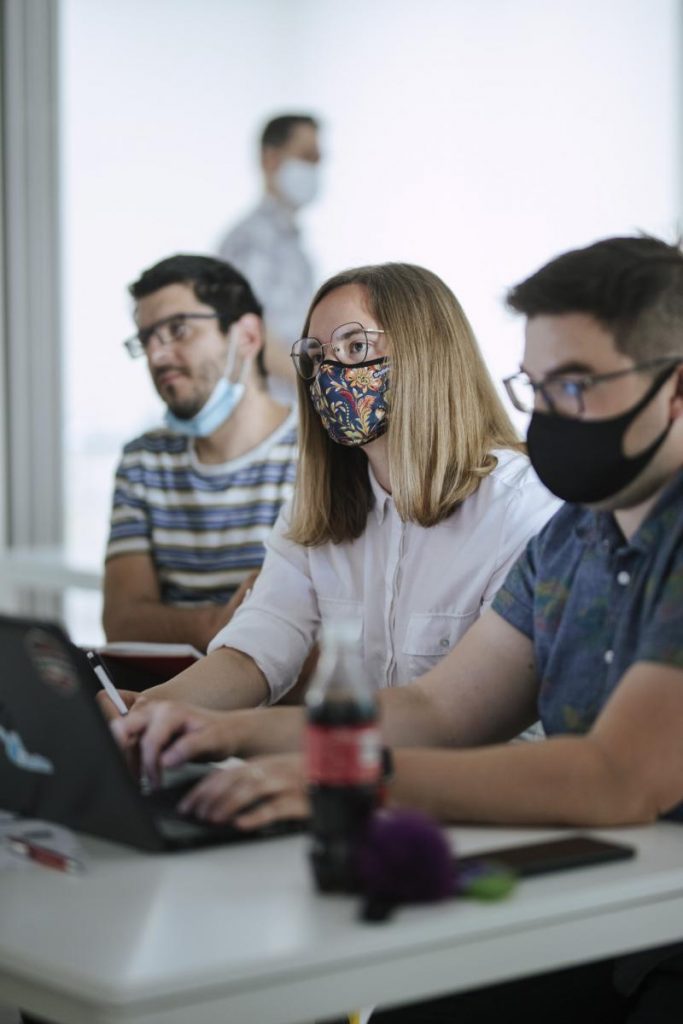
The most socially useful solution was made by Dorian Bojić and Klara Cvetković, who worked on a digital calendar solution for Aunt Storytellers. Aunts and Barbe Storytellers are one of those everyday heroes who make the world better by telling goodnight stories to children who are unfortunately in the hospital. To help them with time management and organisation, a mobile application has been created that makes it easier for them to organize appointments for telling stories. The jury recognized their digital solution as the most socially useful because it is really needed in the civil sector and all those who work with volunteers.
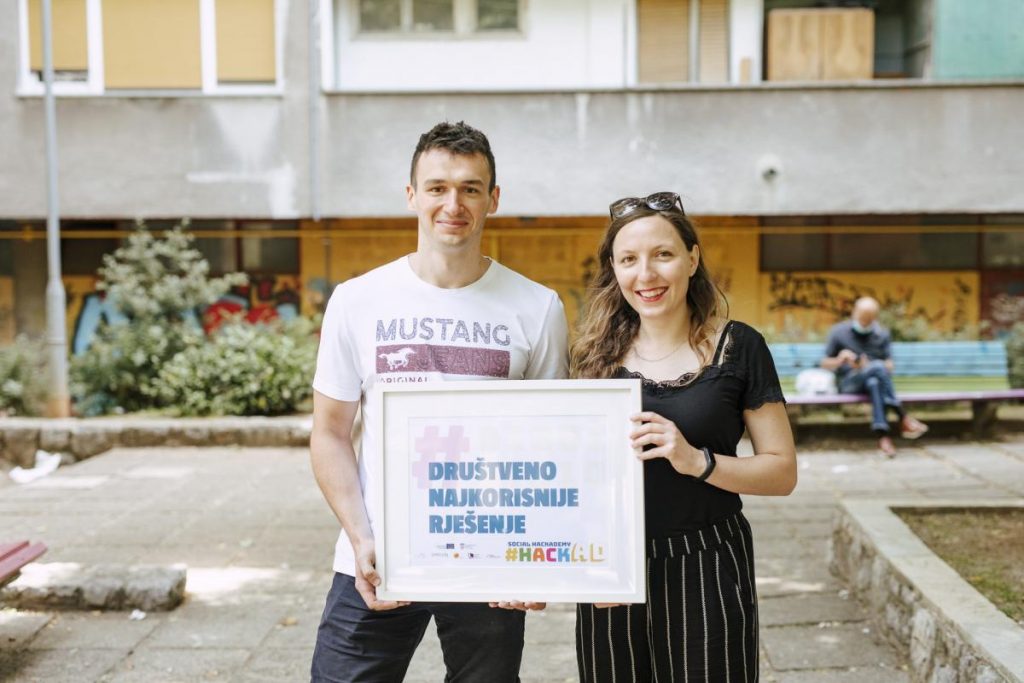
The mobile version of the MemoRi Foundation‘s physical fundraising game so far has been declared the most transferable solution of the social Hackathon. The jury in this game sees the possibility of transferability for different purposes and environments. Kristina Jugovac and Elena Ujčić worked on the digital solution.
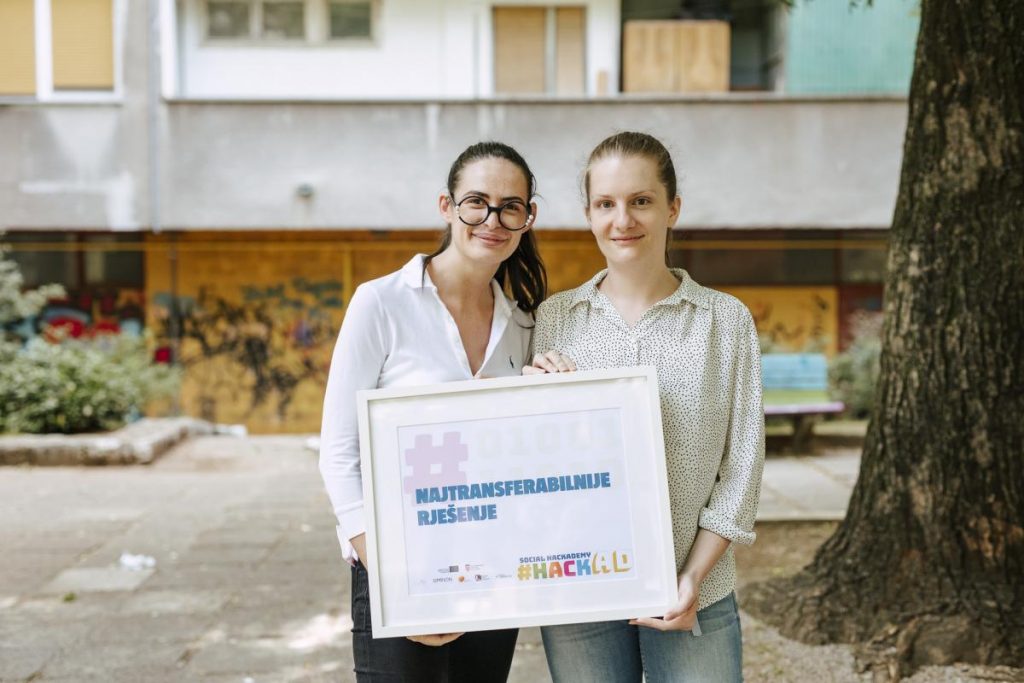
As the most innovative solution of the Rijeka Hackathon, the jury pointed out the mobile application for recording the mood Phoenix, named after the Split association that requested the solution. Two teams worked on it, and the award was given to Iva Matetić and Matea Dejanović Jozić. The app is a new form of support for people dealing with mental disabilities, and using a calendar that records their moods, tips and other options allows them to achieve and maintain a state of remission and mental stability.
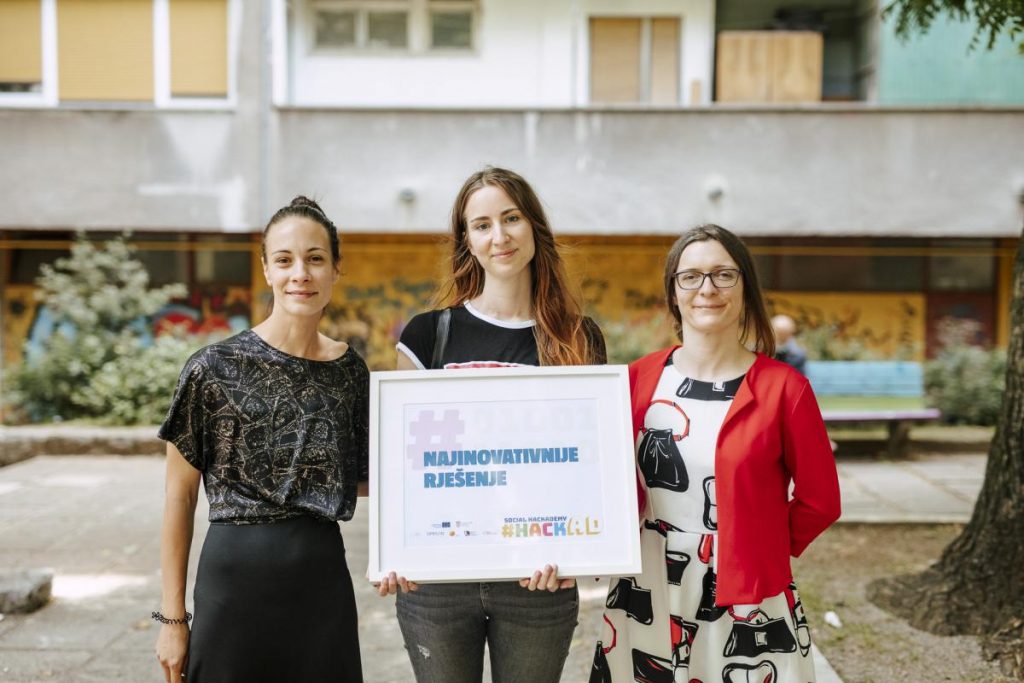
Due to its direct contribution to the 16th UNs Sustainable Development Goal (SDG), which seeks to promote peaceful and inclusive societies for sustainable development, ensure access to justice for all and build effective, accountable and inclusive institutions at all levels, the Peace, Nonviolence and Peace Prize website human rights “Krunoslav Sukić” was declared the digital solution that contributes the most to the UN’s global goals of sustainable development. Mateo Uhoda and Tomislava Konjevod worked on the digital solution, and the need for it was expressed by the Center for Peace, Nonviolence and Human Rights Osijek.
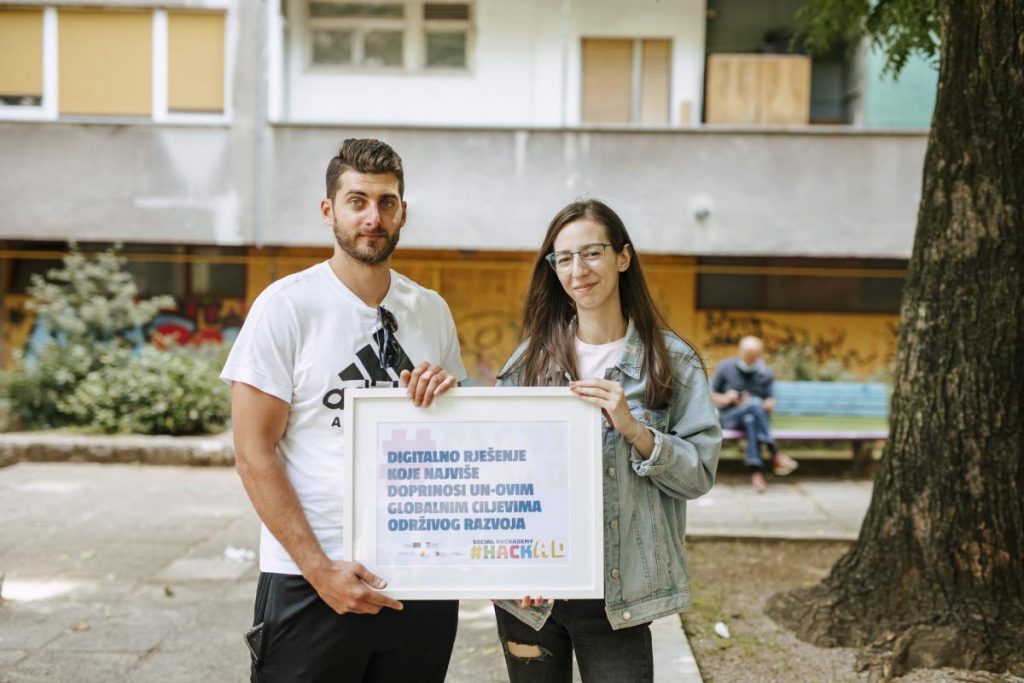
The overall best solution at the Social Hackathon Rijeka was made by Marija Siladjev and Lana Prar, who created the application for recording the Phoenix mood. Their solution was recognized by the jury as the most complete solution that meets all the criteria of the social Hackathon – it is socially useful, transferable, innovative and contributes to the UN’s global goals of sustainable development.
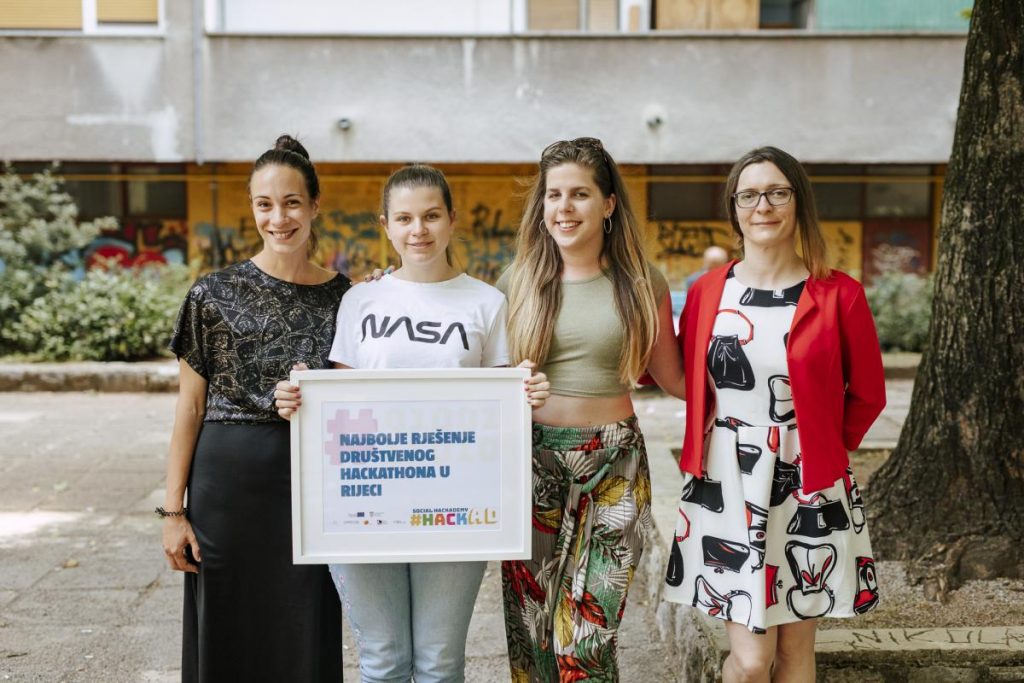
As 48 hours is not enough time to complete digital solutions, the teams will continue to work with the civil society organisations they have worked with in this short period of time so that the digital solutions they have been working on have been completed and can be used. In addition to the above solutions, the teams worked on an application for playing social games for the Scout Association of Rijeka and promotional material for the project Action for 5! Delta Association from Rijeka.
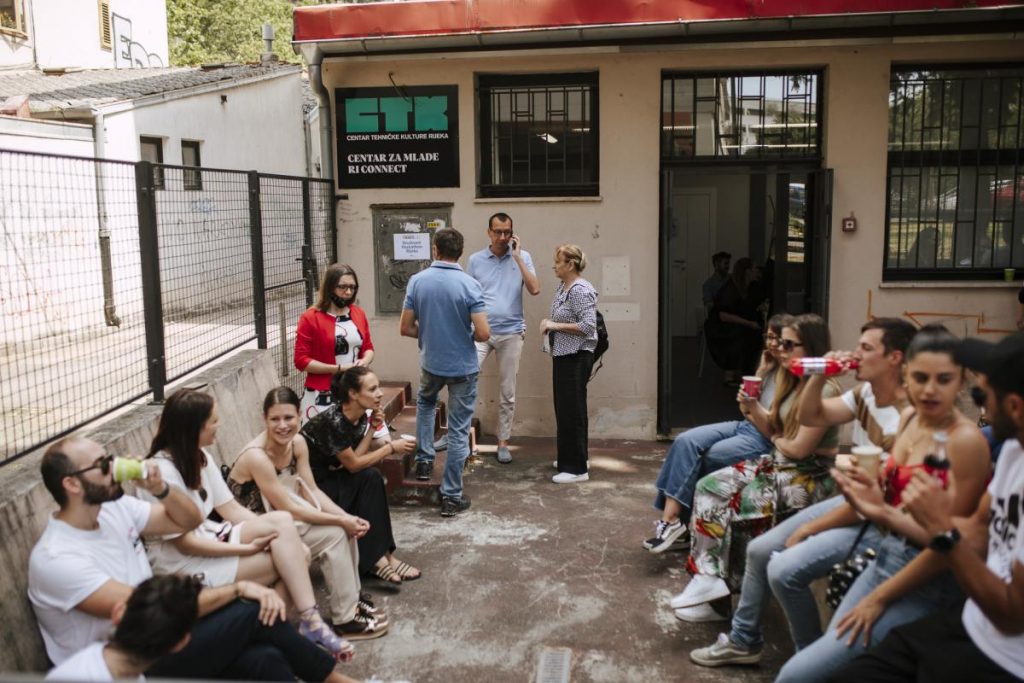
Social Hackathon is part of the international Erasmus + project Social Hackademy (#hackad), which is implemented not only in Croatia but also in Belgium, France, Greece and Italy. Young people have been participating in the project for several months, during which they have been educated in the field of visual and graphic design, web design and development of native mobile applications.
Author: Ivan Mušanović (CTC Rijeka)
Photos: CTC Rijeka


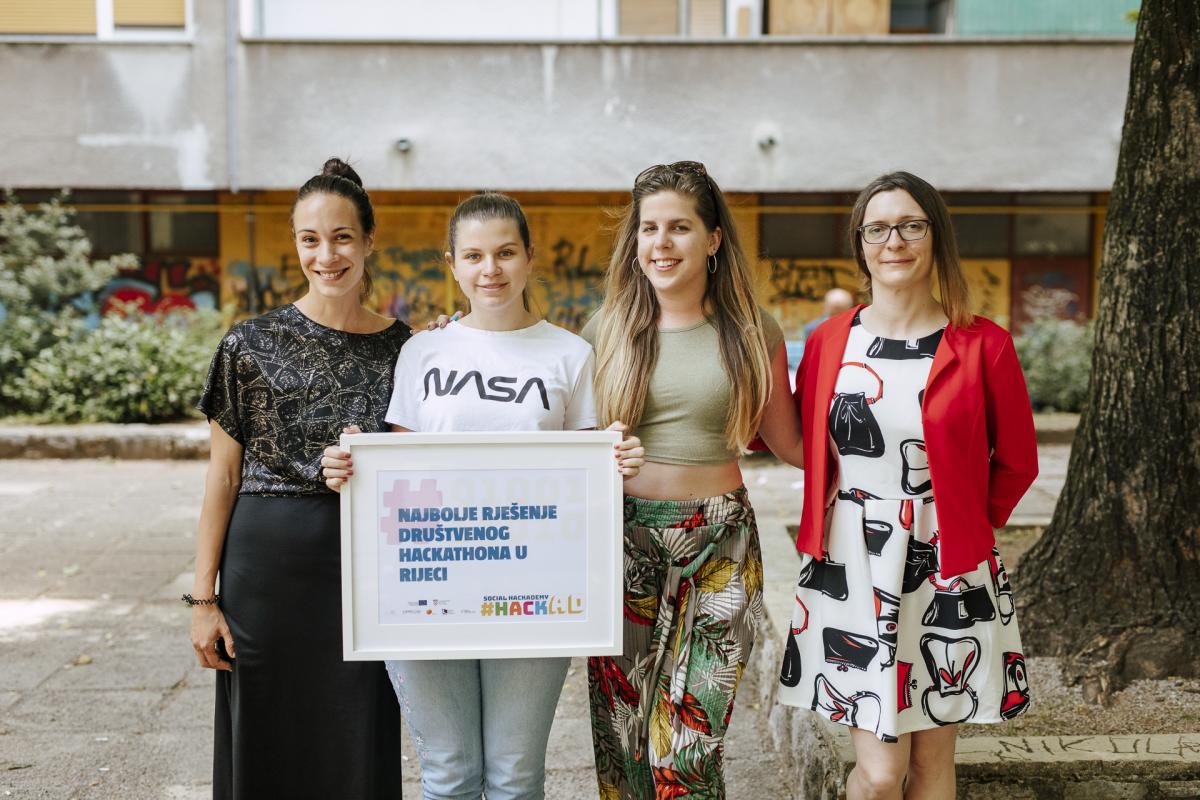


No Comments